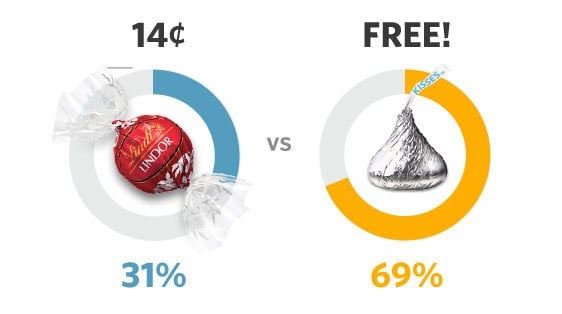 Some people are incredibly persuasive. They have a gift. Other people are learned persuaders—marketers for example, who know things like the 5 most persuasive words in the English language. Or why removing ‘is’ from your vocabulary is going to make you a more powerful communicator.
Some people are incredibly persuasive. They have a gift. Other people are learned persuaders—marketers for example, who know things like the 5 most persuasive words in the English language. Or why removing ‘is’ from your vocabulary is going to make you a more powerful communicator.
Luckily we can all be taught.
These are the 5 most persuasive words in English:
You – (or the name of the person) is something that is often easily forgotten and yet critically important for great communication.
As it turns out, while people might like the word “you,” it is guaranteed that that they love reading their own name much more. According to recent research examining brain activation, not much lights us up quite like seeing our own name.
Free – Dan Airley has done some great research on the principle of loss aversion. It would appear most of us go for the free option, no matter what – even if it isn’t what we actually want, and we can afford what we do want.
In one experiment he did, participants were asked to pick either a Lindor truffle, costing 14 cents, or a Hershey’s kiss, costing 1 cent. Only 27% of people chose the Hershey’s kiss, despite the fact it was significantly cheaper. When asked to choose again, but offering the Hershey’s kiss as free, 69% of people chose it despite the fact they would have preferred the Lindor truffle and could have afforded it.

Because – Because is probably as dangerous as it is useful. Creating a causal relationship is incredibly persuasive and even giving weak reasons have been shown to be more persuasive than giving no reason at all.
In a study from the book Influence by Robert Cialdini, tests were conducted on requests from a person in a hurry to use an in-office copy machine. The tests examined how different requests might affect people’s willingness to allow this person to “cut” in line. Those that gave a reason were allowed to cut in 94% of the time!
Instantly – Several MRI studies have shown just how fired up our mid-brain gets when we envision instant rewards, and how it’s our frontal cortex that’s activated when it comes to waiting for something (that’s a no-no for sales).
Words like “instant,” “immediately,” or even just “fast”, are triggers for flipping the switch on that mid-brain activity.
Removing “is” from your language
Alfred Korzybski, the creator of General Semantics, was firmly convinced that the ‘to be’ verbs like “I am, he is, they are, we are” made people go a bit crazy (and not in a good way). Why? Because things can’t be exactly equal to something else.
Apparently, in our unconscious minds this X = Y creates all kinds of mental irritation.
If you read the following list of examples and you will probably see how different the feeling of the statements is:
“He is an idiot” vs. “He acted like an idiot in my eyes”
“She has a terrible voice” vs. “She didn’t sound her best on that phone call”
“I am a failure” vs. “I think I’ve failed at this task”
“I am convinced that” vs. “It appears to me that”
You believe yourself to have more complexity than one single definition, right? Yet unconsciously accepting this languaging constrains us to believe we operate as nothing more or less than the idea we identified ourselves with.
To learn more about the power of words, read our previous blog post Which Words Matter Most, for some free, new tips that you can learn instantly!
About VTSL:
VTSL provides hosted business phone systems and VoIP office phone services to small and medium businesses around the UK. With over 30 features free, an online web portal and free support VTSL is able to offer business phones systems that provide true value for money at £8 per user per month. Learn more by calling 020 7078 3200.

